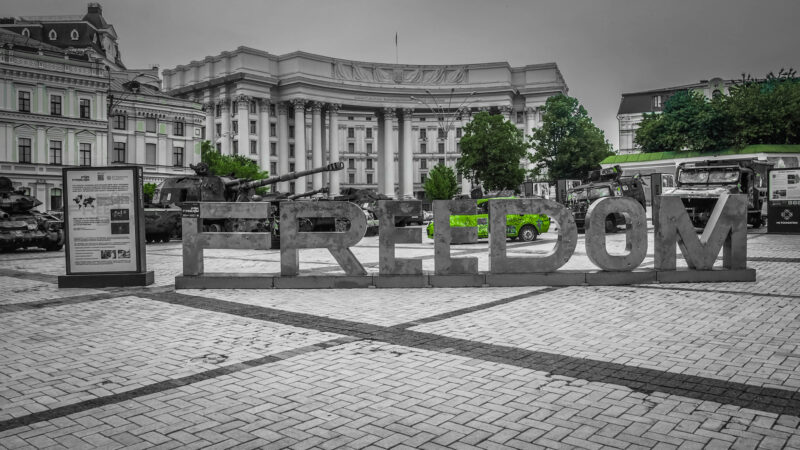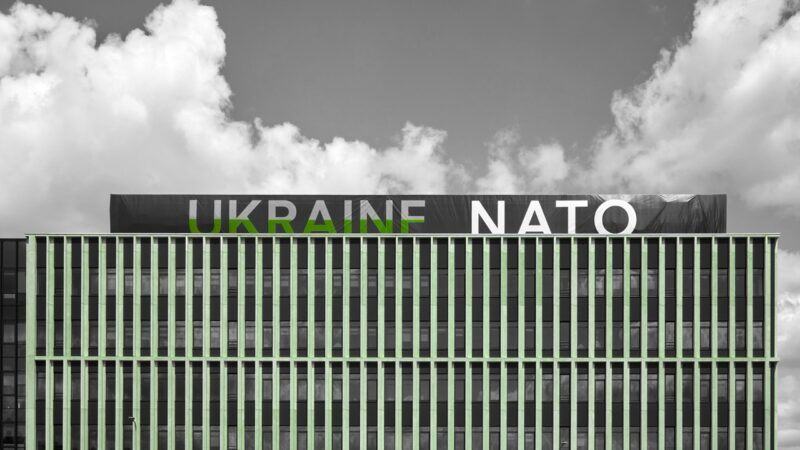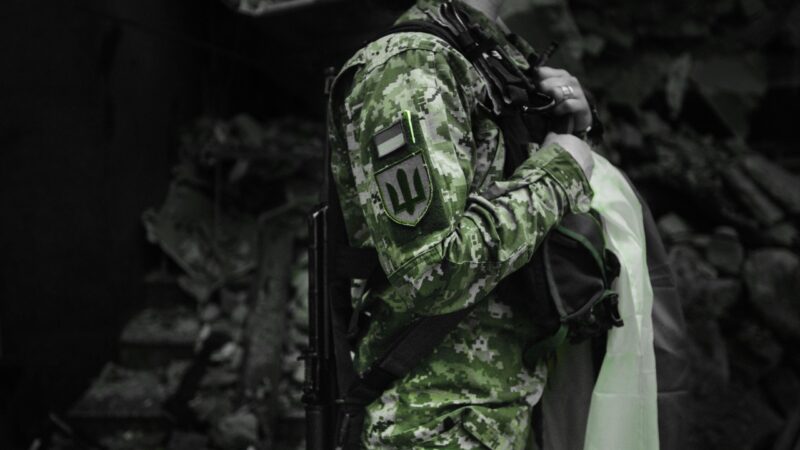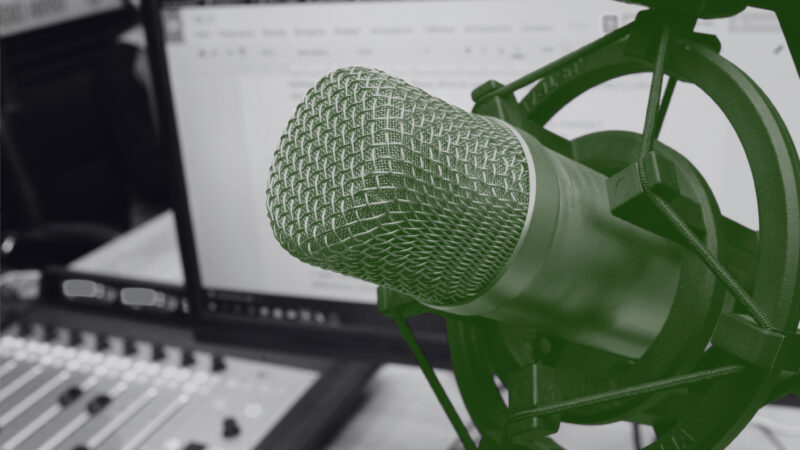Putin’s dehumanizing discourses and the power of Ukrainian resistance and resilience
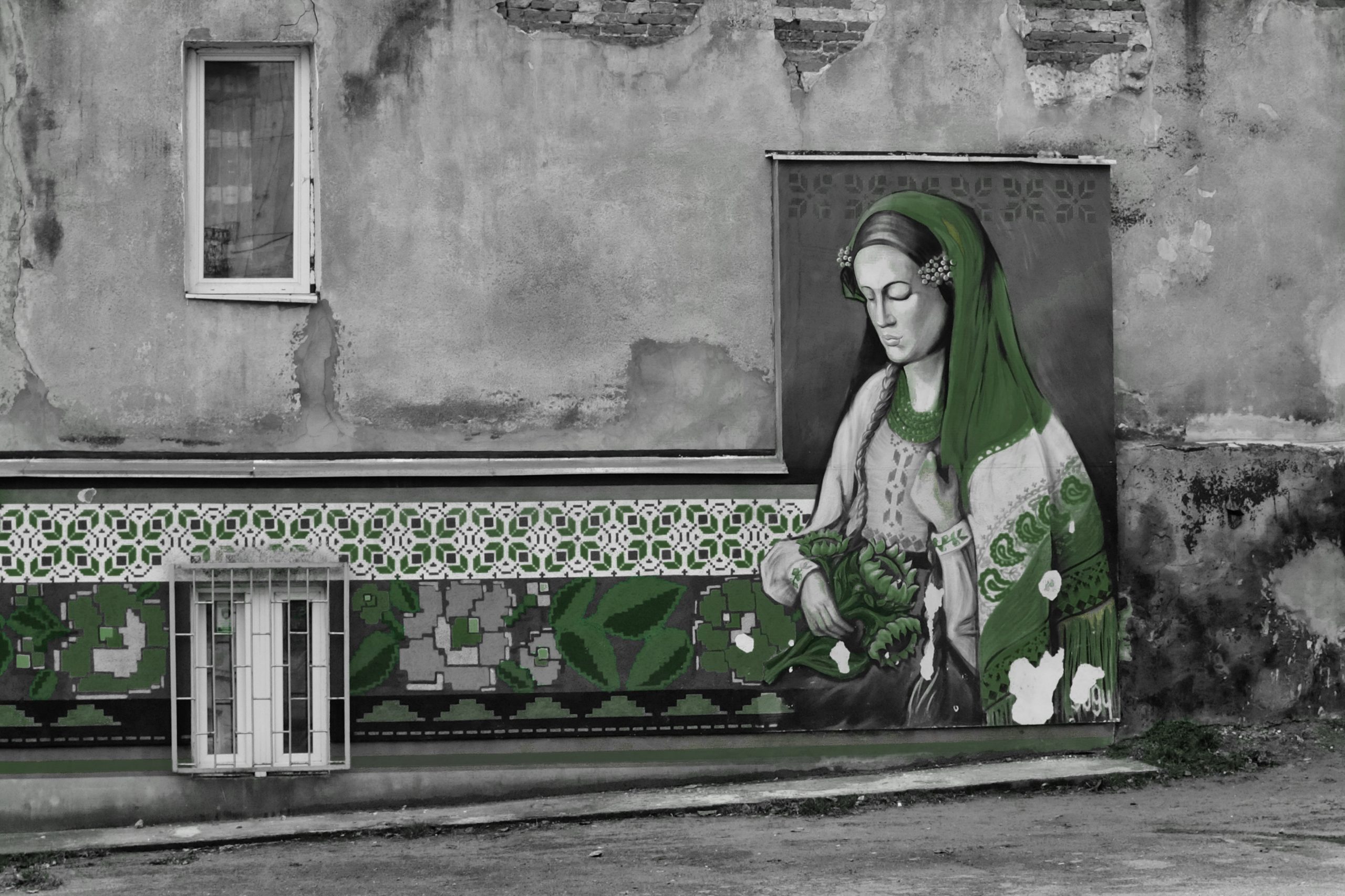
The violent war that Vladimir Putin has unleashed in Ukraine has now passed the four-month marker. Every day we hear new accounts of monstrous torture, rape, and killing of Ukrainian civilians, which includes children and the elderly. Putin’s unjustified war of aggression is fueled by a particular (pseudo) historical narrative, whose components, nonetheless, exhibit familiar colonial and imperialist tactics—tactics whose purposes are to dehumanize a purported enemy-other (i.e., the Ukrainians) and to destroy their culture, history, and identity. As a result of the indiscriminate bombing of civilian areas and objects, hundreds of breathtakingly beautiful cultural sites—churches, art museums, cultural monuments, architectural masterpieces, and many other cultural artefacts—have been and continue to be heavily damaged, and many have been destroyed.
Learning from Stalin: Putin’s absolutization of falsehoods
In a recent article detailing the treasures of Ukraine’s cultural heritage and the daily threat of their destruction, Olenka Z. Pevny describes the cultural significance of two world heritage sites in Kyiv—namely, the Monastery of the Caves and the Cathedral of St. Sophia, both of which date to the 11th century. The Museum of Historical Treasures of Ukraine, located within the Caves Monastery compound, houses the Scythian gold pectoral, a priceless ancient work of art dating to the 4th century BC. As Pevny observes, “The shelling of this museum would efface the archaeological and visual record of numerous cultures unique to Ukraine. Works of Scythian art were already taken from Ukraine during the Soviet period and fill Russian museums.”
Like so many aspects of the present war in Ukraine, Putin’s brutality shares family resemblances with his predecessor Joseph Stalin, who under Putin’s regime has been reconstructed as a great hero of the Fatherland. Of course, there are differences between the two leaders; Putin is not a mere repeat of Stalin.[1] However, their tyrannical repressive rule at home as well as their inhuman violence toward Ukrainians and refusal to acknowledge and respect Ukraine’s autonomy and alterity show striking similarities. In a recent article comparing the two leaders, Simon Sebag Montefiore writes: “Putin’s repression at home increasingly resembles Stalinist tyranny—in its cult of fear, rallying of patriotic displays, crushing of protests, brazen lies and total control of media.” When it comes to their views of and actions toward Ukraine, Montefiore highlights the following common features: “Then there is Ukraine, a country that was brutally repressed by Stalin and is now attacked by Putin. The Russian president shares a part of Stalin’s determination to liquidate the nationality and independence of Ukraine at any cost.”
Putin’s writings and propagandistic discourse about Ukraine and Ukrainians are replete with contradictions and historical inaccuracies. Such contradictions and calculated falsehoods are part and parcel of the disinformation component of Putin’s hybrid warfare, which aims both to confuse and disorient his audience as well as to control information and construct a rigid, authoritative discourse that cannot be publicly challenged or contested from within the Russian state. Putin’s discourse depicts Ukrainians as “Nazis” and “fascists”—a dangerous enemy-other that must be destroyed. (The fact that Ukraine’s President Volodymyr Zelensky is Jewish underscores the absurdity of Putin’s Nazi discourse.[2]) In a recent article by the pro-Kremlin political pundit—or, better, “political technologist”—Timofey Sergeytsev titled “Chto Rossiia dolzhna sdelat’ s Ukrainoi?” (What should Russia do with Ukraine) a narrative is created that ultimately equates all Ukrainians with Nazis and the process of “denazification” with an “inevitable” process of “de-Ukrainization” [Денацификация неизбежно будет являться и деукраинизацией]. That is, Sergeytsev not only asserts that the Armed Forces of Ukraine, Security Service of Ukraine, and organized territorial defense forces are war criminals and Nazis, all of which must be “punished in such a way that an example is made” [примерно и показательно наказаны] through a process of “total lustration” [тотальная люстрация] or purging. According to Sergeytsev, not only are the military and top Ukrainian leaders deemed Nazis but likewise he asserts that “a significant portion of the masses are also guilty of being passive Nazis and collaborators of Nazism” [виновна и значительная часть народной массы, которая является пассивными нацистами, пособниками нацизма]. The masses—that is, those who survive—must be denazified, which, among other things, will require “re-education” [перевоспитания] and “severe censorship” [жесткая цензура]. (We have already seen these tactics enacted in Mariupol.) Sergeytsev’s essay was published on RIA-Novosti, a Russian state news agency with significant audience impact.
Russian neo-colonial discourse regarding Ukraine
Whereas many European colonial discourses construct the “other” as exotic, Putin’s (pseudo) historical-narrative, which nonetheless exhibits its own colonial inflections, completely denies any Ukrainian otherness or alterity.[3] For example, he proclaims that Russians and Ukrainians are “one people—a single whole” who share “essentially the same historical and spiritual space.” That is, according to Putin’s narrative Ukrainians are not Ukrainians but Russians who have failed to recognize their “true” (fixed, essentialist) identity, having been seduced by Western forces, and whose political paradigms and alleged decadent values have enticed them to abandon their destiny as descendants of “Ancient Rus.” Seen in this distorted light, Ukrainian identity and self-understanding are false constructions that must be dismantled so that Ukraine’s supposed true essence can be liberated and its fragmentary, fallen existence can be made whole again through its reunification with Holy Rus. To achieve this goal, the most horrific violence imaginable is not only acceptable but celebrated and bestowed with the highest military honours. Such brutality and violence, according to Putin’s logic, is apparently necessary in order to reunify the fragmented “mystical body” of Holy Rus. Although in his essay and in other recent writings and public statements Putin claims to be concerned about the safety and well-being of Russian-speakers in the Donbas, his actions cut through the propagandistic double-speak. In the context of his discussion of the ongoing fighting in the Donbas region prior to the current full-scale war, he claims that “Russia has done everything to stop fratricide.” And yet the reality is that today some of the heaviest, most brutal Russian bombing and missile strikes have taken place in Mariupol and now the Donbas region—precisely where so many Russian-speaking Ukrainians live. Consequently, thousands of Ukrainians in these regions have died, many of whom are unquestionably Russian speakers. Similarly to the falseness of Putin’s claims that he would not invade Ukraine, his empty talk of preventing fratricide rings not only hollow but cynical, cruel, and perverse.
Repeatedly throughout his essay, Putin emphasizes the shared language and Orthodox faith of Russians and Ukrainians as indelible signs signifying Ukrainians’ “true” identity as Russians. However, Putin’s narrative floats above the actual diverse, concrete reality of Ukrainian life and society’s embrace of a plurality of languages and religions. Many Ukrainians speak both Ukrainian and Russian, and code-switching is a common phenomenon in everyday Ukrainian life. Moreover, many Ukrainians whose first language is Russian strongly identify as Ukrainians and see Ukraine’s bilingualism in a positive rather than a negative light. (Of course, there are tensions and controversies within Ukraine about how each language should be viewed, and this will likely intensify after the war.) The point, however, contra Putin, is that language, although an important part of culture, does not rigidly determine or fix one’s cultural, social, or national identity. The same applies to religious faith. There are Ukrainian Jews, Ukrainian Orthodox Christians, and Ukrainian Muslims, and within these categories one encounters diverse expressions of Christianity, Judaism, and Islam.[4] Multiple expressions of religious faith not only coexist in Ukraine but even work together—and Putin’s war has only strengthened this collaborative work. Within Orthodoxy itself, and especially in light of the Russian patriarch Kirill’s blessing of Putin’s war, there are divisions and differences of opinion regarding faith, doctrine, and what the proper relationship should be between Church and state. Ukrainian Orthodox priests as well as Christian priests and leaders worldwide have strongly condemned Kirill’s teaching and actions, calling him an ideologue who preaches the doctrine of the “Russian World” rather than the “Gospel of Christ.” Here again, Putin’s imaginings of Ukraine and Ukrainian identity widely miss the mark. Whereas Putin’s discourses and tactics seek to eradicate difference and plurality by violently imposing its conjured unity on Ukraine through indiscriminate bombardment of civilian areas and cultural sites, Ukraine’s actions and self-understanding promotes unity in difference. That is, a recognition and embrace of plurality, diversity, freedom, and democratic principles, forged through solidaristic actions and lived experience, constitutes Ukraine’s values and way of life—values that Ukrainians have chosen and which they share with the West. As the Ukrainian philosopher Volodymyr Yermolenko stated in his recent essay in the Economist, “Freedom is the key trait of Ukraine’s identity as a political nation. Ukrainian political culture is based upon anti-tyrannical, democratic, and republican values.” In stark contrast, Putin and his cronies detest democratic principles, values, and institutions. Early in the present war, the Kremlin cracked down on any independent news coverage of the war, threatening journalists with up to 15 years of imprisonment for reporting that deviates from the official state narrative. Consequently, any vestige of journalistic freedom, independent reporting, and genuine media diversity no longer exists in Russia.
Ukrainian resilience and its price
As this hellish war rages on, Ukrainians continue to inspire us with their courage, resilience, compassion, and creativity. For example, the Ukrainian cellist Denys Karachevtsev finds the strength to perform a Bach cello suite amidst the decimated buildings in Kharkiv, showing that beauty cannot be destroyed by Putin’s bombs. Others plant flowers in the colours of the Ukrainian flag to beautify areas recently hit by Russian missile attacks. The band Kalush showcases its talent with a stellar performance of “Stefania” and wins the 2022 Eurovision song contest, helping to raise awareness of the war and the need to continue to support Ukraine. Communities work together to rebuild their lives and homes and reopen their businesses, despite the tremendous challenges, not to mention existential dangers, posed by the ongoing active war. Through their individual and solidaristic actions Ukrainians demonstrate to the world who they are and what they believe. Their willingness to give their lives for their own self-determination and freedom has not only been a source of inspiration but has also reanimated key democratic institutions (including NATO). Their individual and collective actions to forge their own multivalent Ukrainian identity and to secure their future as a sovereign democratic country serve as reminders that our own democracies and the democratic principles which we cherish are not givens but rather require constant nurture, building, and rebuilding.
It is worth remembering that Ukraine’s 2013–14 Maidan Revolution is also called the “Revolution of Dignity.” During some of coldest months of winter, thousands of Ukrainians both young and old took to the streets, risking their lives for their belief in fundamental human rights, the freedom to determine their own political future, and human dignity. To quote Yermolenko again, “Ukraine’s recent history is a story about the values of dignity moving east. […] Today’s Ukraine is a country in which the values of dignity for all are taking root. This provokes horror in today’s Russia, which wants to re-establish authoritarian values, and where the only person with dignity is the tsar or dictator.” As Ukraine enters its most difficult phase of the war thus far, our support for Ukraine cannot waver; the thousands of Ukrainian lives that have been lost cannot be lost in vain. Nor can we allow brutal autocratic leaders like Putin to inspire others of his kind to enact their own wars of aggression. A defeat in Ukraine would be a defeat to democracies worldwide.
Works Cited
Etkind, Alexander. Internal Colonization: Russia’s Imperial Experience. Cambridge: Polity, 2011.
Montefiore, Simon Sebag. “Why Putin is beholden to Stalin’s legacy: The Russian president has embraced the Soviet cult of fear and control; his invasion of Ukraine is a colossal gamble to secure his place in history.” The New Statesman. 9 March 2022. https://www.newstatesman.com/culture/2022/03/a-tale-of-two-dictators-why-putin-is-beholden-to-stalins-legacy
Pevny, Olenka Z. “Ukraine’s cultural heritage faces destruction as Russia’s bombing continues.” The Conversation. 9 March 2022.
Putin, Vladimir. “On the historical unity of Russian and Ukrainians.” 12 July 2021.
Putin, Vladimir. “Transcript: Vladimir Putin’s televised address on Ukraine” 24 February 2022.
Ritchie, Hannah, Masha Angelova, and Rob Picheta. “Putin gives honorary title to Russian brigade accused of war crimes in Bucha.” CNN. 19 April 2022.
Sergeytsev, Timofey. “Chto Rossiia dolzhna sdelat’ s Ukrainoi.” RIA-Novosti. 3 April 2022 (updated 5 April 2022).
Snyder, Timothy. The Road to Unfreedom: Russia, Europe, America. New York: Tim Dugan Books, 2018.
Von Hagen, Mark. “From imperial Russia to colonial Ukraine.” In The Shadow of Colonialism on Europe’s Modern Past, edited by Róisín Healy and Enrico Dal Lago, 173–93. New York: Springer 2014.
Yermolenko, Volodymyr. “Volodymyr Yermolenko, a Ukrainian philosopher, considers his national identity.” The Economist. 5 March 2022 (updated 11 March 2022).
[1] Montefiore discusses many of the differences between Putin and Stalin in his article. Among these important differences are: “Stalin was a fanatical internationalist Marxist; Putin believes in the exceptionalist ‘Russian world’ starting with the Orthodox conversion of Vladimir the Great in 988. He despises Marxist ideology, believing that the Leninist revolution shattered the Russian imperium. Eschewing Communism, he promotes Kremlin-KGB-capitalism. Stalin, who had no interest in money and only possessed a couple of uniforms (though he enjoyed the use of comfortable mansions), would be disgusted by the vulgarity of the yachts and planes of Russia’s ultra-rich.”
[2] See also Timothy Snyder’s discussion of Russia’s new version of fascism as schizofascism—that is, “actual fascists calling their opponents ‘fascists’” (Road to Unfreedom, 145). Snyder also highlights how antisemitic and racist rhetoric is often employed in contemporary Russia’s “schizofascist” discourses (see especially 145–58).
[3] For a detailed discussion of the complexities and peculiarities of Russia’s colonizing practices, see Mark Von Hagen, “From imperial Russia to colonial Ukraine,” in The Shadow of Colonialism on Europe’s Modern Past, edited by Róisín Healy and Enrico Dal Lago, 173–93 (New York: Springer 2014). Regarding Soviet colonizing violence, see Timothy Snyder’s “Integration and disintegration: Europe, Ukraine, and the world,” Slavic Review 74.4 (2015): 695–707. Unlike maritime empires such as Great Britain, France, and the United States, which travelled to distant lands to conquer territory and subjugate and murder indigenous people, the Soviet Union and today’s Russia colonize and terrorize their neighbours, denying their sovereignty, territorial integrity, and right to self-determination. As Snyder explains, Stalin used the term “internal colonization,” which describes the Soviet regime’s treatment of Soviet territories—with Ukraine a central target of its cruelty—as analogous to the way in which “maritime empires treated their distant possessions” (Road to Unfreedom, 697). See also Alexander Etkind, Internal Colonization: Russia’s Imperial Experience (Cambridge: Polity 2011) for a detailed study of Russian history and its inflection of colonizing violence.
[4] For example, within the Christian realm one finds Ukrainian Roman Catholics, Ukrainian Protestants, and Ukrainian Greek Catholics.
Photo Credit: Photo by Michał Lis on Unsplash
